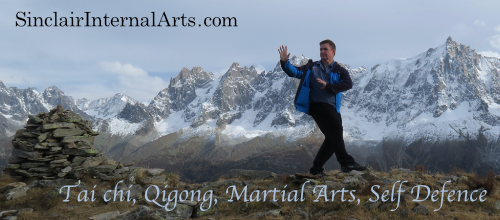In the ancient military classic, “The Art of War”, Sunzi begins by listing five constants that determine victory. The first of these is a moral compass.
A nation is not defined by its borders. It is defined by the principles upon which it is built. To defend a nation is to defend its principles. The strength and durability of those principles is the primary factor in predicting victory.
The same applies to individual combat. The integrity that we mean to defend is, itself, our primary weapon. The more secure our integrity, the more likely our victory.
Fear or arrogance can lead us to abandon our principles in order to attack the enemy. But this is like being led by a feint into a trap of our own making.
A well-used tactic is to lead the opponent to abandon their position, to compromise their balance, to forget their integrity. In so doing, they defeat themselves.
The primary focus of martial art training is to “harmonize the inner and outer”. This requires a calm mind, a relaxed body, and the constant perfection of balance. It requires the cultivation of insight into oneself and insight into the enemy. Such insight cannot be achieved through hatred or fear, but rather through love and understanding.
Moral integrity has evolved as a tactic, and as a long-term strategy. It can be practical as a finite strategy. But it is essential as a part of an infinite strategy.
Nations that compromise their moral integrity for short term gain will lose their position and weaken themselves in the long run. Individuals who compromise their integrity for the short game, seldom survive long enough to play the long game.
This is why the solo practice is so important. One cannot be expected, in the heat of battle, to have a calm mind and balanced body if one does not refine these virtues in times of peace. It is in the still and quiet moments that one cultivates the qualities that are worth defending. Those qualities, in turn, will provide the strength and integrity necessary to prevail in battle.
‘On the eve of battle, on a cold windless night, an old general turned to a young soldier. “Tomorrow”, said the master, “You will know fear.”
‘The young soldier, who had not yet experienced the agony of war, looked at the general with quizzical eyes. “How will I know fear if I do not know what it looks like?”
‘The general replied, “You will know fear because it speaks very fast and it speaks very loud.” If that is how fear acts, recognizing it is easy.
‘But as the young soldier considered the general’s advice, she asked the question facing us now. “Once I know fear, how do I defeat it?” ‘
– Star Trek Discovery, 115
‘We are no longer on the eve of battle. Even so, I come to ask myself the same question that young soldier asked the general all those years ago: “How do I defeat fear?”
‘The general’s answer? “The only way to defeat fear is to tell it no. No, we will NOT take shortcuts on the path to righteousness. No, we will NOT break the rules that protect us from our basest instincts. No, we will NOT allow desperation to destroy moral authority.”
‘ I am guilty of all these things. Some say that in life, there are no second chances. Experience tells me that this is true. But we can only look forward. We have to be torchbearers, casting the light so we may see our path to lasting peace.’
– Star Trek Discovery, 115

Comments are closed.